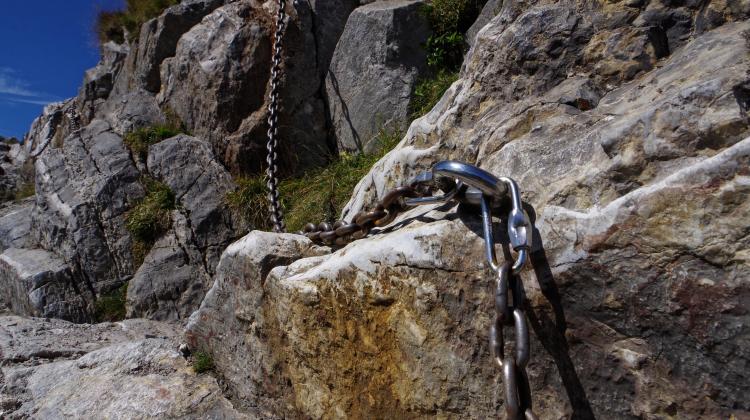Hattrick! Three Polish scientists win ERC Consolidator Grants
 Credit: Fotolia
Credit: Fotolia
Three Polish scientists are among over 320 winners of the ERC Consolidator Grant, a prestigious grant awarded by the European Research Council.
The ERC Consolidator Grant is given to outstanding researchers in any scientific field with at least seven years of post-doctoral research record which this year saw 327 projects receive funding worth EUR 655 million.
Dr. Justyna Olko from the Faculty of 'Artes Liberales' of the University of Warsaw will receive nearly EUR 2 million grant for her project aimed at a better understanding of the cause and effect mechanisms and processes behind the emergence, continuity, reduction and loss of multilingualism in historical, geographic, social, political and cultural contexts.
The planned results of the research project include the development of recommendations and tools for the development of language policies that will more effectively support the preservation of linguistic and cultural diversity. They will be developed based on the results of the analysis of extensive data and models created by her research team. The research will be carried out in Central and Eastern Europe, Mexico, South Africa and one of the islands of the Vanuatu Archipelago in Melanesia.
Another Polish researcher awarded in the competition, Professor Piotr Faliszewski from the AGH University of Science and Technology in Kraków, will receive a grant of nearly EUR 1.4 million for his work on the computational theory of social choice. For over 15 years, Faliszewski has been developing research on electoral systems. The winning project assumes the creation and development of decision-making mechanisms in specific areas including local institutions, sports, culture, and internet searches.
He said: “As part of the project, we will try to link theory to practical applications. In particular, we will look for effective algorithms that will allow to make fair and easy-to-understand decisions on which candidates, players or grassroots projects should be selected.”
Dr Sebastian Glatt from the Małopolska Centre of Biotechnology of the Jagiellonian University received the Consolidator Grant ERC for almost EUR 2 million. His research will contribute to a better understanding of the molecular mechanisms of the fundamental processes of high clinical significance that shape and control the functioning of cellular proteins in all living organisms.
He said: “The project allows us to look at the basic functions of the cellular mechanisms that regulate the production of all proteins in both health and disease periods. We know that changes in these mechanisms have a key role in the development of cancer and severe neurodegenerative diseases. We intend to investigate these changes and how they relate to these diseases. Our goal is to provide new diagnostic and therapeutic tools to combat currently incurable diseases. To achieve our goals, we will use our many years of experience in structural biology, as well as access to the world-class Cryo-EM microscope at the SOLARIS National Synchrotron Radiation Centre.”
The research funded by this year's Consolidator Grant competition will be conducted in 23 countries, by scientists of 40 nationalities. Most will be conducted in Germany and the UK (50 grants each), and France (34 grants). For the first time, a grant will also be implemented in Ukraine, as a country associated with the Horizon 2020 programme.
The ERC awards funds for three main types of projects scheduled for up to 5 years. Starting Grant (max. 1.5 million euros) is awarded to people with two to seven years of experience since completion of the PhD, Consolidator Grant (max. 2 million euros) is awarded to scientists with seven to twelve years of experience since completion of the PhD, and Advanced Grants (max 2,5 million euros) is available to independent scientists with established achievements, who conduct their own research.
PAP - Science in Poland
ekr/ agt/ kap/
tr. RL
Przed dodaniem komentarza prosimy o zapoznanie z Regulaminem forum serwisu Nauka w Polsce.















